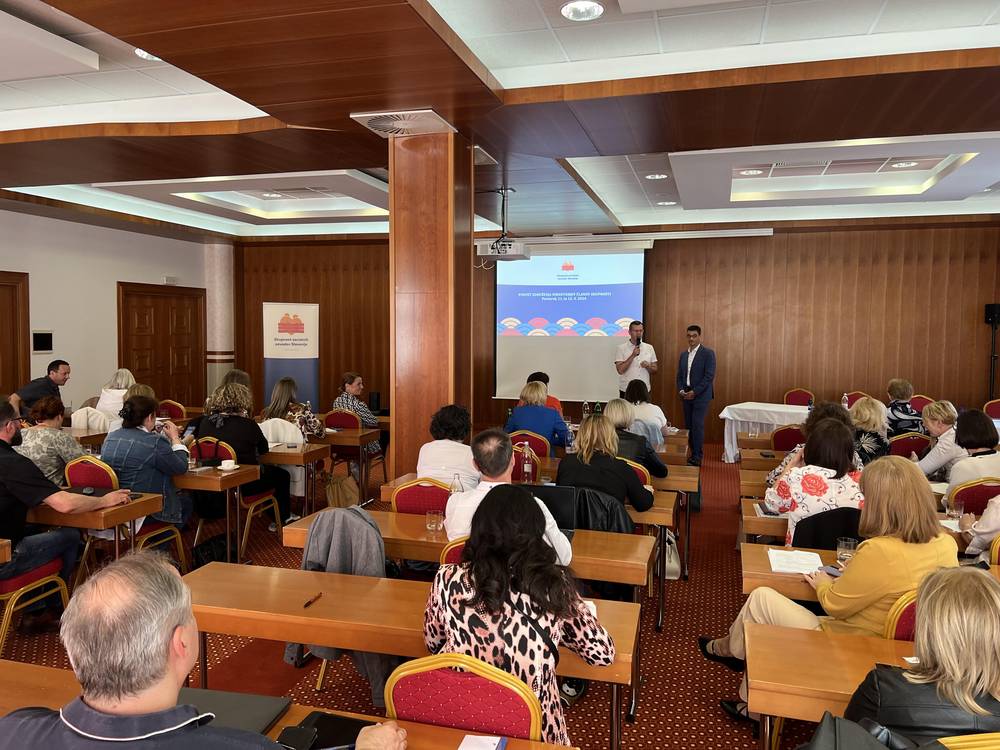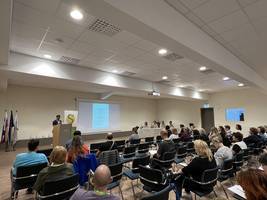On 12 April 2024, Human Rights Ombudsman Peter Svetina presented to the Association of Directors of the Members of the Community of Social Institutions of Slovenia in Portorož the view of the institution he leads on the issue of care and protection of residents in homes for the elderly and special institutions for adults, as well as the issue of users of assistance at home. He also spoke about the activities of the Ombudsman institution in this area and the powers of and recommendations he addresses to those responsible to resolve the increasingly pressing issues of staff shortages, service prices, and insufficient funds for investments.
"The system we have is not sustainable, and the country still does not have an appropriate strategy to address this issue. We expect the authorities at the systemic level to eliminate the lack of suitable personnel in homes for the elderly by establishing appropriate personnel standards that would enable safe and high-quality treatment of users, by improving working conditions and appropriate payment for the work done," said Ombudsman Svetina.
They also touched on the lack of nursing hospitals, which after the discharge of elderly patients often become nursing homes, as relatives are often unable to provide home care and urgently need institutional accommodation. They pointed out that there are still many systemically unresolved issues regarding the provision of medical and dental care in homes and payment for it.
"With an unsustainable system, we are only deepening the indecent ageing of people in this country. This trend must be stopped. It is necessary to establish a clear vision of all forms of aid and to provide adequate financial support for this," added Ombudsman Svetina.
***
The Association of Social Welfare Institutions of Slovenia unites providers of institutional care for the elderly, represents providers who care for more than 20,500 residents in homes for the elderly and special institutions, and employs almost 11,000 workers. The Association is an intermediate link between the interests of practitioners and decision-makers at the national, regional, and local levels. It advocates and promotes the further development of institutional care for the elderly, and in doing so strives especially for the financial sustainability of the system in light of the expected demographic trends.


